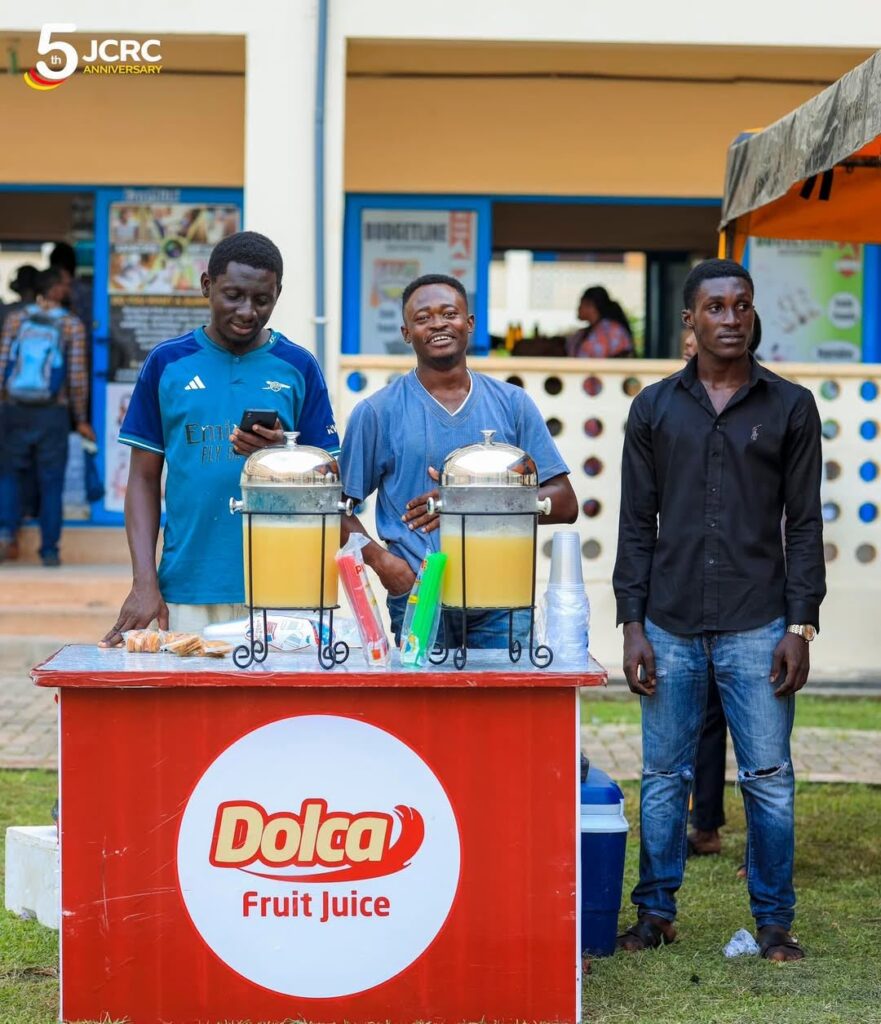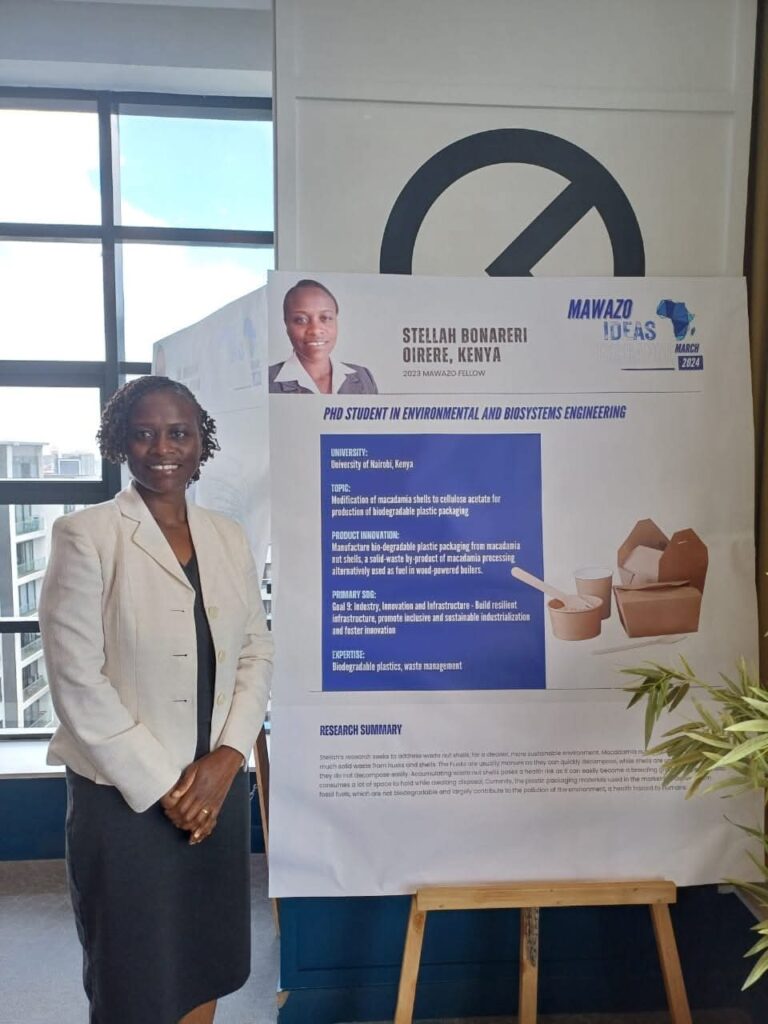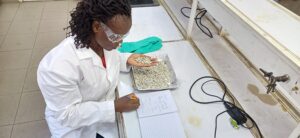Changing Lives Through Ecosystem Strengthening: The Research and Innovation Systems for Africa (RISA) Fund
In 2020, Munkaila Mohammad sat by the hospital bed where his father lay, suffering from a medical condition that would ultimately take his life. Although treatments could have saved his father, Munkaila, like many young Ghanaian farmers, lacked the financial resources to afford the necessary medical care.
“It was very sad,” he explains. “Friends came in later with financial support, but by then, the situation had become worse. If we’d had the finances earlier, I’m sure he would have survived.”
It was then that Munkaila committed himself to finding a more stable and profitable source of income for his family.
“That was the moment I decided,” he explains. “As a young man, the family looks up to you to provide shelter, food, and accommodation. It had become a problem for me.”
Before his father’s passing, Munkaila had begun developing a concept for a home-based business that would convert perishable foods into juices and other products. Munkaila’s vision was two-fold: to support farmers with their livelihoods while tackling the critical issue of post-harvest losses. Following his father’s death, he committed to finding the resources to turn his business idea into a reality.
He then learned about a project under the FCDO-funded Research and Innovation Systems for Africa Fund (RISA) called Bridging the Research Innovation-Industry Assimilation Gap through Technology Capacity Building in Rural Ghana, or BRIInG. The project, which the University of Ghana Business School (UGBS) implemented, helped farmers like Munkaila develop their production and business development skills.

Munkaila intends to scale up production with newly acquired machinery funded by the RISA program which will allow Dolca Fresh to meet growing market demands and explore international exports.
“[The training] was very helpful,” says Munkaila. “I learned more about processes to improve the production of fruit juices. We learned how to pasteurise them and how to use the excess juices to produce vinegar. We also learned about market research, our customer base, and our target market.”
Through RISA’s support, UGBS has transformed its approach to supporting rural entrepreneurs beyond training programmes. The BRIInG project enabled UGBS to build a community of practice that connects rural innovators, researchers, private sector actors, and government agencies.
UGBS has also developed local cooperatives to manage makerspaces and coordinate rural innovators, strengthening the capacity of enterprises through improved access to skills, networks, financial resources, and markets.
Following the support from BRIInG, Munkaila began expanding his business, Dolca Fresh Enterprises, by hiring full- and part-time employees and selling his juices directly to customers and local hotels, restaurants, and events. That expansion continues today.
He intends to scale up production with newly acquired machinery funded by the RISA programme, which will allow Dolca Fresh to meet growing market demands and explore international exports. He aims to establish his own fruit farms while continuing to collaborate with smallholder farmers to secure a steady supply of fresh produce.

In 2024 Munkaila was awarded the “Ghana Grows Young Innovators Award” as part of the Mastercard Foundation’s Africa Works initiative.
In 2024, Munkaila was awarded the “Ghana Grows Young Innovators Award” as part of the Mastercard Foundation’s Africa Works initiative. He has since developed a philanthropic giving programme to provide school supplies to those in need in his community.
“I want to thank the RISA Fund very much because, without them, I don’t think I would have the full potential of scaling up my business, winning this award, and then also being able to employ people,” he says. “This programme has been very helpful to my family and community, and it could benefit all of Africa someday.”
Munkaila is one of many ambitious African innovators who lack the training and financial resources to innovate, scale, and pursue their entrepreneurial visions. This is the reality for many small-scale entrepreneurs in rural Ghana and smaller cities, where poverty rates are higher than in larger areas like Accra and Kumasi due to systemic and structural barriers.
Conditions like these go well beyond rural Ghana. Millions of Africans’ aspirations are thwarted by poverty, limited access to basic services, a lack of education and skills, food insecurity, market access, and other challenges.
That’s why, in 2021, the UK’s Foreign, Commonwealth & Development Office (FCDO) and its partners launched the RISA Fund, a programme that supports and strengthens research and innovation systems in Ethiopia, Ghana, Kenya, Nigeria, Rwanda, and South Africa.
Flourishing research and innovation systems help to drive inclusive economic growth and development, which is why the RISA Fund assists African institutions in tackling the continent’s most complex social, economic, and health challenges. By building sustainable partnerships through grants, the project supports institutions to access the knowledge, partners, investors, and markets they need to generate actionable research and influence policy. Actionable research drives technology, products, and business growth.
Committed to fostering gender equality, diversity, and inclusion, RISA integrates these principles into its programming and organisational activities. The programme also developed new technologies to connect investors with entrepreneurial ventures and created trade and industry partnerships that previously did not exist.
To bridge the gap between research and commercialisation, RISA trains researchers on how to transition their technologies from the lab to the market. It also equips venture funds with the skills to identify viable, scalable research projects. The programme facilitates existing and emerging “Internet of Things” solutions to enhance business operations and commerce, ensuring that innovation drives sustainable economic growth across Africa.
Chemonics UK leads the programme consortium, working closely with Results for Development and SOAS, who provide critical technical advisory in Innovation and Research respectively. RISA’s senior management team, based at the hub in Nairobi and supported by technical leads in Nigeria, Ghana and South Africa, direct the implementation team and provide overall contractual and programme management.
To date, the RISA Fund has provided grant funding to 28 projects involving research commercialisation, venture capital, acceleration, and strengthening connections between academia, industry, and policy.
This initiative has:
- Supported 370 innovations, with 73 transitioning to scale
- Supported 143 research projects, 41 of which have been finalised or published
- Established 333 collaborative relationships, including 163 joint initiatives
- Raised over £23 million in capital commitments by grantees, with over £6 million already secured
- Enabled 20 of 28 grantees to demonstrate tangible outcomes of gender equality and social inclusion (GESI) practices
Like Munkaila Mohammad, Stellah Oirere faced significant financial challenges in the years before she began pursuing her dream of obtaining a PhD in environmental and biosystems engineering at the University of Nairobi.

Support from the Mawazo Fellowship provided PhD student Stellah Oirere with resources to afford research assistance and materials, as well as valuable mentorship from other accomplished women.
Stellah and her family struggled to find financial stability. They survived through hard work, bursaries, and the generosity of community well-wishers. “I come from a family of eight; my parents were never formally employed,” she explains. “I was often looked upon to provide for myself and my siblings.” Despite her financial struggles, Stellah was determined to gain an education that would enable her to solve the environmental threats facing her community, country, and continent. Although she endured constant delays and financial uncertainty, Stellah became the first member of her family to attend university, earning bachelor’s and master’s degrees from the University of Nairobi. She then wanted to achieve a PhD emphasising waste reduction, but she again faced financial uncertainty.
“I was hoping that there would be a way to raise the finances to be able to pursue this programme,” she explains. “I really didn’t know exactly where I was going to get the resources from.”
Fortunately, in 2023, a friend told Stellah about the Mawazo Institute, a women-led organisation that supports early-career African women researchers. With support from the RISA Fund, the Mawazo Fellowship provided Stellah with the financial resources she needed to pursue her PhD and offered her mentorship from other accomplished women.

With support from the RISA Fund, the Mawazo Fellowship provided Stellah with not only the financial resources she needed to pursue her PhD but also mentorship from other accomplished women.
“That really helped me,” she explains. “The speakers who have gone through the journey as women were able to share their experiences, and I got to learn how they manoeuvred their way to achieve what they had achieved.”
Through the Mawazo Fellowship, Stellah received support that is helping her develop a process for extracting and converting cellulose from nut shells into biodegradable plastic. When completed, this process could create an entirely new industry that helps address the waste disposal crisis that affects Africa and the rest of the world.
With RISA’s support, Mawazo has established comprehensive structures that transform how women researchers develop in Africa. Through the Mawazo Learning Exchange (MLEx) and groundbreaking Mawazo Connects Network, researchers receive mentorship, collaborate, and gain crucial skills in research communication, grant writing, and gender lens research, areas often overlooked in traditional academic settings.
The sustainability of RISA’s impact is evident in how both UGBS and Mawazo have institutionalised changes. UGBS has integrated commercialisation pathways into new sectors like biotechnology and developed knowledge products that serve as blueprints for future initiatives. Meanwhile, Mawazo has diversified its funding sources and begun generating revenue through its knowledge products, podcasts, and training materials. These approaches ensure that the ecosystem strengthening initiated by RISA will continue benefiting innovators and researchers across Africa for years to come.
RISA Fund Programme Director Eleanor Tuck describes the approach that led to the RISA Fund’s success:
“We support research and innovation organisations to create an environment that enables ideas to flourish into quality, relevant research or viable commercial products,” Tuck explains. “We strengthen enablers to identify new and emerging technologies that could reduce poverty and be more inclusive. We also identify and connect research and innovation systems to improve integration and coordination. It’s been an honour to help these inspired innovators realise the visions that will benefit their communities and countries.”
Oirere is grateful for the programme: “I would like to say thank you to the RISA Fund,” she says. “I believe that this support is not going to stop just with me. It probably will support other people who have been struggling to achieve their dreams but have not been able to due to financial constraints.”